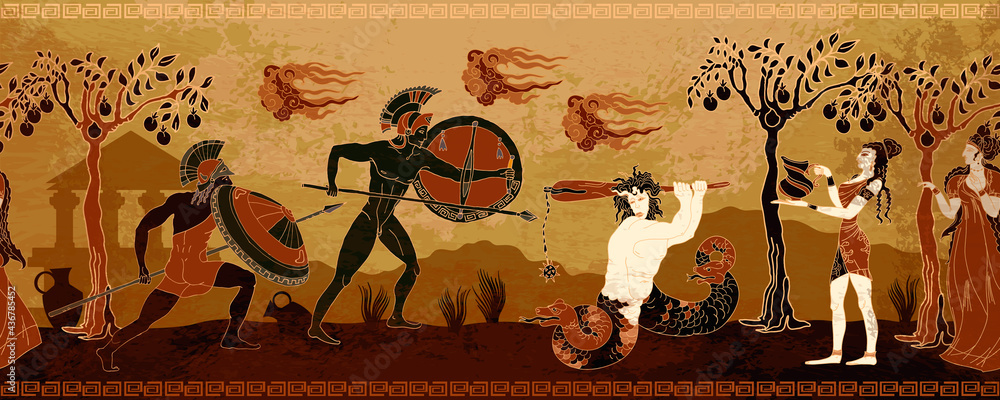Zeus was a curious god and used to come down to earth to test the hospitality of its inhabitants. Because he did it openly and people knew he was a god, he was received with respect and admiration.
However, one day his curiosity reached the limit and he wondered if he would be welcome among men if he did not prove his true identity. In this way, he went on the adventure, but first he invited his son Hermes and he accepted.
They disguised themselves as humble travelers who just wanted a place to rest for a while. The first house they found was a very large and handsome one, but they refused entry on the pretext that it was not an inn.
The second house they found on the way looked like they were having a party, so they went to ask the host if they could join them for a while. The gentleman refused them entry and did not allow them to see anything, with the excuse that they were celebrating his daughter's wedding.
While they were walking with no destination in mind, because they were already tired and only receiving insults due to their appearance, they came across a small house that seemed to be falling to pieces. They decided to knock on the door.
When they opened the door, they found an elderly couple, Philemon and Baucis. This couple saw the condition and desperation of their guests and invited them to come to their house and rest for a while. Although that place was very humble, the couple offered the few things they had, such as soup, homemade drink and something else.
As Philemon was pouring the drink into his guests' glasses, he noticed that there was no more to drink, so he apologized to the guests saying that he could offer them nothing more. Suddenly, Zeus snapped his fingers and the vessel was filled with drink again. The couple were surprised and realized that they had two great gods as guests in their humble home.
Grateful for the couple's hospitality, Zeus granted them one wish. The elders said they wanted to die together when their time came. Zeus made it happen: first he flooded the city where they were not treated well, and then he created a temple dedicated to him, where they could spend the rest of their days together, until the day it was their turn to depart for the land of the shadows
Although many more years passed, the day came and the wish came true. Strolling hand in hand through the temple gardens the couple began to transform into trees as their roots intertwined. Philemon spoke his last words: "Farewell, my love."
Explained by M. Vilademunt

_-_Mercury_and_Jupiter_in_the_House_of_Philemon_and_Baucis.jpg)




.jpg/1280px-La_ca%C3%ADda_de_Faet%C3%B3n_(Jan_Carel_van_Eyck).jpg)


